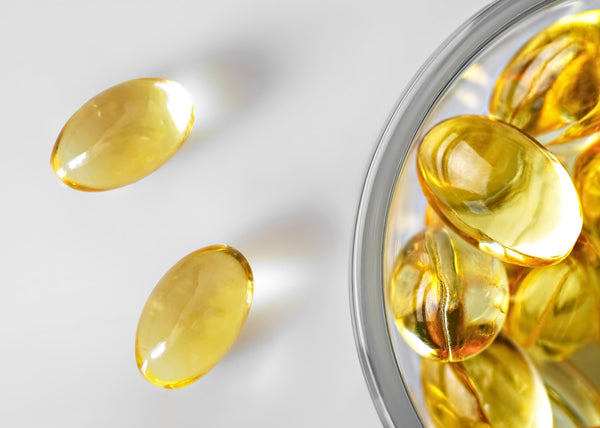How to Increase Testosterone Naturally: Effective Diet and Lifestyle Changes
Testosterone is a vital hormone that plays a crucial role in men's health, influencing everything from energy levels to muscle mass. However, testosterone levels naturally decline with age, starting around 30. The good news is that you can boost testosterone levels naturally through a simple diet, lifestyle changes, and with the help of the right supplements.
Tips for Testosterone Boost
Before diving into diet and lifestyle changes, let's cover some essential tips:
- Maintain a healthy weight: Managing weight is one of the important steps men can take for their health. As belly fat increases, the enzyme aromatase becomes more active converting testosterone in fat cells into estrogen. This condition of low testosterone and high estrogen levels further leads to fat accumulation.
- Getting proper sleep: Majority of the body's testosterone production occurs during deep sleep, particularly when a person enters the Rapid Eye Movement (REM) stage. There is evidence that shows lower testosterone levels being linked to disruptions in the sleep cycle that reduce the time spent in REM sleep
- Limit alcohol and quit smoking: Both of these habits negatively impact testosterone production. A study published revealed that heavy smokers, those consuming 36.5 packs or more per year experience a more rapid age-related decline in testosterone compared to non-smokers.
- Manage stress: Cortisol levels in the blood serve as markers of stress. This steroid hormone can lead to increased fat accumulation, which in turn promotes the conversion of testosterone to estrogen.
Diet for Optimal Testosterone
A balanced diet rich in essential nutrients supports testosterone production:
- Zinc: A study showed that elderly men with slight zinc deficiencies had higher testosterone levels after taking zinc supplements for six months. A few good sources of zinc that help support testosterone synthesis include oysters, beef, chicken, and pumpkin seeds.
- Vitamin D: Vitamin D deficiency is linked to low testosterone levels, with research indicating that men with a deficiency may experience an increase in testosterone levels following vitamin D supplementation. However, these findings were not observed in healthy men, indicating that exceeding normal vitamin D levels does not lead to higher testosterone production. Dietary sources of vitamin D include fatty fish, fish liver oils, egg yolks, and cheese. The most effective ways to increase your vitamin D levels are through sun exposure or supplementation.
- Magnesium: Magnesium boosts testosterone by supporting the body's natural testosterone production, protecting the cells that produce it, and helping to increase the amount of free testosterone in the body. Additionally, it also enhances exercise performance, which can give testosterone levels an extra boost. One study found that taking magnesium supplements for at least a month may boost testosterone levels in everyone, with those who exercise experiencing a more pronounced increase. A few good sources of magnesium include cereals, green leafy vegetables, seeds, nuts, cocoa, and seafood.
Maintaining a balanced intake of protein, fats, and carbs can optimise hormone levels and promote overall health. Eating a nutritious, well-rounded diet that includes the right mix of these macronutrients, along with testosterone supplements, can help support healthy testosterone levels.
What to Avoid?
High consumption of soy and processed foods—rich in sugar, unhealthy fats, and sodium can lower testosterone levels. Additionally, excessive sugar intake can disrupt hormonal balance, further impacting testosterone.
Lifestyle Changes to Naturally Boost Testosterone
Beyond diet, making certain lifestyle changes can significantly enhance testosterone production:
- Stay Physically Active: Regular physical activity, especially strength training and resistance exercises, can naturally elevate testosterone levels by promoting muscle growth and improving overall metabolism.
- Include Regular Relaxation Time: Engage in hobbies or activities that you enjoy and that help you unwind, as chronic stress can suppress testosterone levels.
- Prioritise Sleep: Ensure you get 7-9 hours of quality sleep each night, as adequate rest is crucial for maintaining optimal testosterone levels.
- Limit Exposure to Environmental Toxins: Reduce your exposure to endocrine-disrupting chemicals like Bisphenol A (BPA), Phthalates, etc. found in plastics, pesticides, and some personal care products, as they can interfere with hormone balance, including testosterone production.
Supplements for Testosterone Support
Consider adding these natural supplements to your routine:
- Shilajit: This natural mineral-rich resin is known for its potential to boost testosterone levels by enhancing energy production and reducing fatigue. Shilajit contains fulvic acid, which improves nutrient absorption and may aid in hormone regulation, promoting better testosterone synthesis. It’s essential to choose a high-quality shilajit supplement that guarantees purity and contains adequate amounts of fulvic acid to ensure maximum benefits.
- Testofen®: It is a patented herbal extract from fenugreek seeds that supports testosterone levels through furostanolic saponins. Research shows it can enhance free testosterone; essential for muscle mass, energy, and vitality. Often used by athletes and fitness enthusiasts, it may boost performance, strength, and recovery while helping to regulate hormonal balance. Adding a supplement with Testofen® can be beneficial for naturally supporting testosterone levels and overall well-being.
- Other supplements: Vitamin D, Magnesium, and Zinc are essential nutrients that support testosterone production, with Vitamin D regulating levels, Magnesium aiding hormone production and relaxation, and Zinc maintaining hormonal balance. Additionally, Ashwagandha helps manage stress and can further boost testosterone levels, making these supplements valuable for overall health.
Conclusion
Boosting testosterone levels naturally requires a holistic approach. Combine these diet and lifestyle changes with a high-quality supplement for optimal results.
By incorporating these simple changes you'll be on your way to:
- Increased energy levels
- Better muscle growth
- Improved mental clarity
- Enhanced overall well-being
It’s always advised to consult a healthcare professional before starting any new supplement regimen!

























